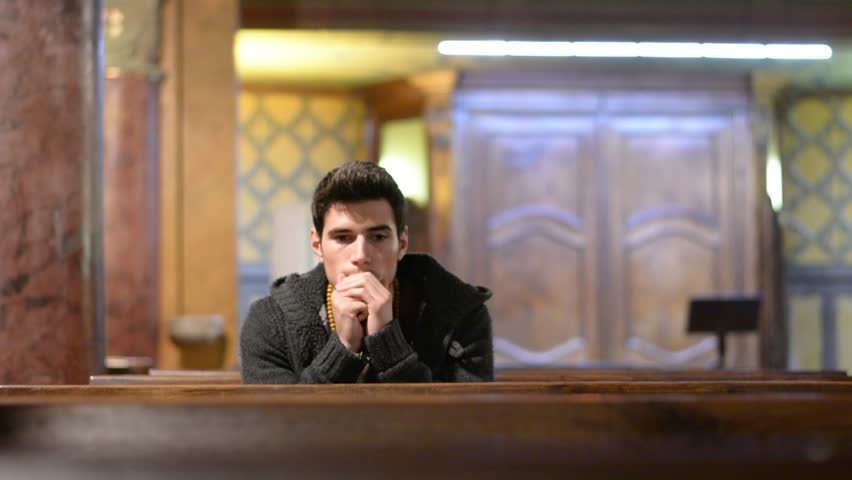We do not have to be in church in order to pray well.
We know we do not have to be in church in order to pray well. I cannot work out whether I am more baffled or appalled by the suggestion that we Catholics ought somehow to be exempted from having our places of worship closed down and should be allowed to go and pray in them regardless.
 We could, I’m told, do this as part of our “daily exercise” – though this is a ludicrous suggestion for many of us: I am simply not up to walking the 40 miles round trip to and from a Catholic church; and, relative to many Scots, I am reasonably close to my regular place of worship. Although of course it is important for me to remember that the fact that I cannot is no reason at all why you should not. It is too often difficult to remember this.
We could, I’m told, do this as part of our “daily exercise” – though this is a ludicrous suggestion for many of us: I am simply not up to walking the 40 miles round trip to and from a Catholic church; and, relative to many Scots, I am reasonably close to my regular place of worship. Although of course it is important for me to remember that the fact that I cannot is no reason at all why you should not. It is too often difficult to remember this.
Even so, I cannot and do not believe that Jesus wants me (or you) to disobey either our bishops or the law in this, nor claim some superior privilege, and believe he does want us (if “want” is the right word) to protect the National Health Service and save lives. I also strongly suspect that those who tell me that the churches should be closed almost certainly know more about Covid-19 and its transmission than I do.
But the strangeness of a Holy Week and Easter without liturgies (or more accurately without liturgies that I can attend; I hope priests are celebrating) has made me think – and pray – about how we “use” both liturgy and private prayer. This has been instructive – and a bit surprising.
For about half the Church’s life (that is, until around ad 1000) the Sacrament was not reserved for personal devotion, although it was distributed, usually by the deacons, after Mass to the sick and “those unable to be present”. On the other hand, icons (paintings of Jesus, the saints and sometimes Christian narratives) were used for personal prayer from very early.
Then I turned to the Gospels. Jesus himself attended synagogue on the Sabbath (Luke 4:16 says that this was “his custom”) and there is an assortment of texts that show that he participated in the public worship, both reading the sacred texts as they were presented to him and “preaching” – usually described as “he spoke to them”. But there are very few accounts of him “praying” in the synagogue.
I do not know enough about first-century Judaism to know whether this was standard practice or his individual choice – or indeed a decision of the early Church, as it became more “gentile”. When Jesus wanted to pray, he seems to have preferred to do it outside – “in a lonely place”– and in the Garden of Gethsemane he asked the disciples to pray but then withdrew from them “about a stone’s throw” (Luke 22:42), although apparently they could still overhear him.
But probably the most relevant text to us in our present circumstances is from the Sermon on the Mount. In Matthew 6:6 Jesus is very clear that for personal (rather than community) prayers, we should not use the synagogue (or church) at all, but “go into your room and shut the door”. What is deeply hopeful about this is that from it we know we do not have to be in church in order to pray well.
Now I can imagine that it is not easy to pray in your sitting room while your teenage child chats to her friend on her mobile or your under-exercised primary-school children do Pilates to a noisy video.
But there are other rooms: when we were little many of us learned to pray in our bedrooms. And the bathroom seems almost perfectly designed for the purpose: it has a fairly low and very un-wobbly seat; if you prefer kneeling, folded towels make excellent hassocks; it is a place that even in the most crowded house you are allowed to be alone and uninterrupted; there is the presence of profound Christian symbolism – purging oneself, washing away any dirt – and there is clean water to remind us of Baptism and regeneration.
We do not need to go to church in order to pray. We do not need to risk infecting others, breaking the law and possibly influencing some idiot to leave their house because if we can be seen walking about then why shouldn’t they. (They can hardly tell from their window that we are heading to a church.) And we may learn some new things about prayer.
Sara Maitland is a novelist and writer.


 Votes : 0
Votes : 0









